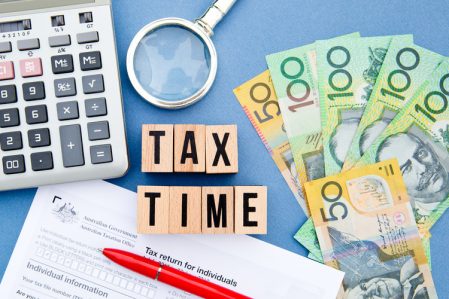
Income taxes are returned, settled and litigated on an annual basis. The taxable year for most taxpayers is the 12-month period opening 1 July and closing the following 30 June. In certain circumstances, a substituted accounting period of 12 months closing on a date other than 30 June may be adopted (¶9-010). Income tax is levied for each tax year on the taxable income derived during the income year.
Annual accounting requires accounting rules to determine in what year income should be returned and deductions claimed. Most individual taxpayers use the cash (or receipts) method of accounting, which means that income is returned when actually or constructively received. But in the case of a business whose books are kept on the accruals (or earnings) method, that method is invariably required for calculating taxable income (¶9-030). In certain circumstances, a taxpayer can be assessable on a cash basis of accounting as well as an accruals basis in the same income year (Dormer 2002 ATC 5078; ¶9-030). Expenditure is generally deductible in the year in which it is incurred (¶16-040).
The annual accounting requirement can produce harsh results by causing deductions to fall in no-income or low-rate years or by causing amounts of income to be bunched together in a single year. Special relief provisions may apply to such situations, eg the carrying forward of past years’ losses (¶16-880), the averaging of income for primary producers (¶18-200) and the averaging of income for artists, composers, inventors, performers, production associates, sportspersons and writers (¶2-140).


